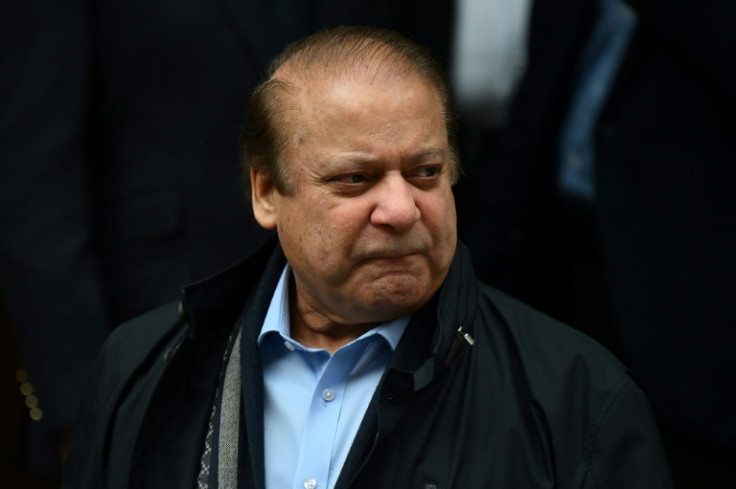Pakistan Passes Law Paving Way For Return Of Exiled Ex-PM

Pakistan's national assembly has passed legislation limiting how long lawmakers can be disqualified from office, a state spokesman said Tuesday, paving the way for exiled former prime minister Nawaz Sharif's return to politics.
Sharif served as Pakistan's prime minister three times -- the last before being ousted over graft allegations in 2017.
The Supreme Court barred him from politics for life and he was later sentenced to seven years in jail.
In 2019 he was granted medical bail and flew to Britain, where he has remained ever since, continuing to steer the family-run Pakistan Muslim League-Nawaz (PML-N) party from behind the scenes.
His brother Shehbaz Sharif became prime minister last year, and the country is due to hold fresh general elections no later than October.
On Tuesday, a government spokesman said the acting president had signed into law an amendment which says courts can only disqualify parliamentarians "for a period not exceeding five years".
The spokesman said senate chairman Sadiq Sanjrani served as acting president signing the bill on Monday, in the absence of President Arif Alvi who is abroad on the Hajj pilgrimage.
"The ruling PML-N and its coalition partners want to bring Nawaz Sharif back," political analyst Hasan Askari told AFP. "The bill has been passed to achieve this objective."
"Nawaz Sharif will be the main campaigner for PML-N in the next election," he added. "His return will be very helpful for the party politically, but it's not clear whether he himself will contest the election."
Sharif still faces the graft case which saw him sentenced during the tenure of his successor, Imran Khan, who won power pledging to undo the corruption which has historically plagued the country.
But in Pakistan, legal cases which tangle politicians in opposition are regularly wound back once their party regains office.
Shehbaz ousted Khan last April via a no-confidence vote. However, he is at the head of a shaky coalition of parties, while Khan remains widely popular in the countdown to polling.
Khan has been calling for snap elections, but his campaign has become bogged down in dozens of legal cases.
Last month he was briefly arrested on graft charges in Islamabad, sparking deadly unrest during which supporters of his Pakistan Tehreek-e-Insaf (PTI) party poured onto the streets and clashed with police.
In the aftermath of his release following three days in custody, PTI has been targeted by a crackdown with thousands of arrests, reports of intimidation and muzzling of the press.
Khan says his party is being suppressed by the government, led by PML-N, and the powerful military establishment.
© Copyright AFP 2025. All rights reserved.





















